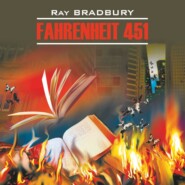По всем вопросам обращайтесь на: info@litportal.ru
(©) 2003-2024.
✖
Long After Midnight
Автор
Год написания книги
2018
Настройки чтения
Размер шрифта
Высота строк
Поля
“That fish came out of the water and jumped as high as the sun. Everything I had ever thought about a fish was in that fish. Everything I had ever thought about a single leap was in that leap. All of my life was there. It was a day of sun and water and being alive. I wanted to hold it all still in my hands. I didn’t want it to go away, ever. Yet there, as the fish fell and the waters moved over it white and then green, there it went….”
By that time, we were at the lobby level and the elevator doors opened and I stepped out with the cage labeled MOTHER and walked quickly across the lobby and out to a taxicab.
The trickiest business—and my greatest danger—remained. I knew that by the time I got to the airport, the guards and the Castro militia would have been alerted. I wouldn’t put it past Shelley Capon to tell them that a national treasure was getting away. He might even cut Castro in on some of the Book-of-the-Month Club revenue and the movie rights. I had to improvise a plan to get through customs.
I am a literary man, however, and the answer came to me quickly. I had the taxi stop long enough for me to buy some shoe polish. I began to apply the disguise to El Córdoba. I painted him black all over.
“Listen,” I said, bending down to whisper into the cage as we drove across Havana. “Nevermore.”
I repeated it several times to give him the idea. The sound would be new to him, because, I guessed, Papa would never have quoted a middleweight contender he had knocked out years ago. There was silence under the shawl while the word was recorded.
Then, at last, it came back to me. “Nevermore,” in Papa’s old, familiar, tenor voice, “nevermore,” it said.
The Burning Man (#ulink_4b8e63d0-d0d7-5c2e-b9b9-e0a88fd91e30)
The rickety Ford came along a road that plowed up dust in yellow plumes which took an hour to lie back down and move no more in that special slumber that stuns the world in mid-July. Far away, the lake waited, a cool-blue gem in a hot-green lake of grass, but it was indeed still far away, and Neva and Doug were bucketing along in their barrelful of red-hot bolts with lemonade slopping around in a thermos on the back seat and deviled-ham sandwiches fermenting on Doug’s lap. Both boy and aunt sucked in hot air and talked out even hotter.
“Fire-eater,” said Douglas. “I’m eating fire. Heck, I can hardly wait for that lake!”
Suddenly, up ahead, there was a man by the side of the road.
Shirt open to reveal his bronzed body to the waist, his hair ripened to wheat color by July, the man’s eyes burned fiery blue in a nest of sun wrinkles. He waved, dying in the heat.
Neva tromped on the brake. Fierce dust clouds rose to make the man vanish. When the golden dust sifted away his hot yellow eyes glared balefully, like a cat’s, defying the weather and the burning wind.
He stared at Douglas.
Douglas glanced away, nervously.
For you could see where the man had come across a field high with yellow grass baked and burnt by eight weeks of no rain. There was a path where the man had broken the grass and cleaved a passage to the road. The path went as far as one could see down to a dry swamp and an empty creek bed with nothing but baked hot stones in it and fried rock and melting sand.
“I’ll be damned, you stopped!” cried the man, angrily.
“I’ll be damned, I did,” Neva yelled back. “Where you going?”
“I’ll think of someplace.” The man hopped up like a cat and swung into the rumble seat. “Get going. It’s after us! The sun, I mean, of course!” He pointed straight up. “Git! Or we’ll all go mad!”
Neva stomped on the gas. The car left gravel and glided on pure white-hot dust, coming down only now and then to careen off a boulder or kiss a stone. They cut the land in half with racket. Above it, the man shouted:
“Put ’er up to seventy, eighty, hell, why not ninety!”
Neva gave a quick, critical look at the lion, the intruder in the back seat, to see if she could shut his jaws with a glance. They shut.
And that, of course, is how Doug felt about the beast. Not a stranger, no, not hitchhiker, but intruder. In just two minutes of leaping into the red-hot car, with his jungle hair and jungle smell, he had managed to disingratiate himself with the climate, the automobile, Doug, and the honorable and perspiring aunt. Now she hunched over the wheel and nursed the car through further storms of heat and backlashes of gravel.
Meanwhile, the creature in the back, with his great lion ruff of hair and mint-fresh yellow eyes, licked his lips and looked straight on at Doug in the rearview mirror. He gave a wink. Douglas tried to wink back, but somehow the lid never came down.
“You ever try to figure—” yelled the man.
“What?” cried Neva.
“You ever try to figure,” shouted the man, leaning forward between them “—whether or not the weather is driving you crazy, or you’re crazy already?”
It was a surprise of a question, which suddenly cooled them on this blast-furnace day.
“I don’t quite understand—” said Neva.
“Nor does anyone!” The man smelled like a lion house. His thin arms hung over and down between them, nervously tying and untying an invisible string. He moved as if there were nests of burning hair under each armpit. “Day like today, all hell breaks loose inside your head. Lucifer was born on a day like this, in a wilderness like this,” said the man. “With just fire and flame and smoke everywhere,” said the man. “And everything so hot you can’t touch it, and people not wanting to be touched,” said the man.
He gave a nudge to her elbow, a nudge to the boy.
They jumped a mile.
“You see?” The man smiled. “Day like today, you get to thinking lots of things.” He smiled. “Ain’t this the summer when the seventeen-year locusts are supposed to come back like pure holocaust? Simple but multitudinous plagues?”
“Don’t know!” Neva drove fast, staring ahead.
“This is the summer. Holocaust just around the bend. I’m thinking so swift it hurts my eyeballs, cracks my head. I’m liable to explode in a fireball with just plain disconnected thought. Why—why—why—”
Neva swallowed hard. Doug held his breath.
Quite suddenly they were terrified. For the man simply idled on with his talk, looking at the shimmering green fire trees that burned by on both sides, sniffing the rich hot dust that flailed up around the tin car, his voice neither high nor low, but steady and calm now in describing his life:
“Yes, sir, there’s more to the world than people appreciate. If there can be seventeen-year locusts, why not seventeen-year people? Ever thought of that?”
“Never did,” said someone.
Probably me, thought Doug, for his mouth had moved like a mouse.
“Or how about twenty-four-year people, or fifty-seven-year people? I mean, we’re all so used to people growing up, marrying, having kids, we never stop to think maybe there’s other ways for people coming into the world, maybe like locusts, once in a while, who can tell, one hot day, middle of summer!”
“Who can tell?” There was the mouse again. Doug’s lips trembled.
“And who’s to say there ain’t genetic evil in the world?” asked the man of the sun, glaring right up at it without blinking.
“What kind of evil?” asked Neva.
“Genetic, ma’am. In the blood, that is to say. People born evil, growed evil, died evil, no changes all the way down the line.”
“Whew!” said Douglas. “You mean people who start out mean and stay at it?”
“You got the sum, boy. Why not? If there are people everyone thinks are angel-fine from their first sweet breath to their last pure declaration, why not sheer orneriness from January first to December, three hundred sixty-five days later?”
“I never thought of that,” said the mouse.
“Think,” said the man. “Think.”
They thought for above five seconds.

















